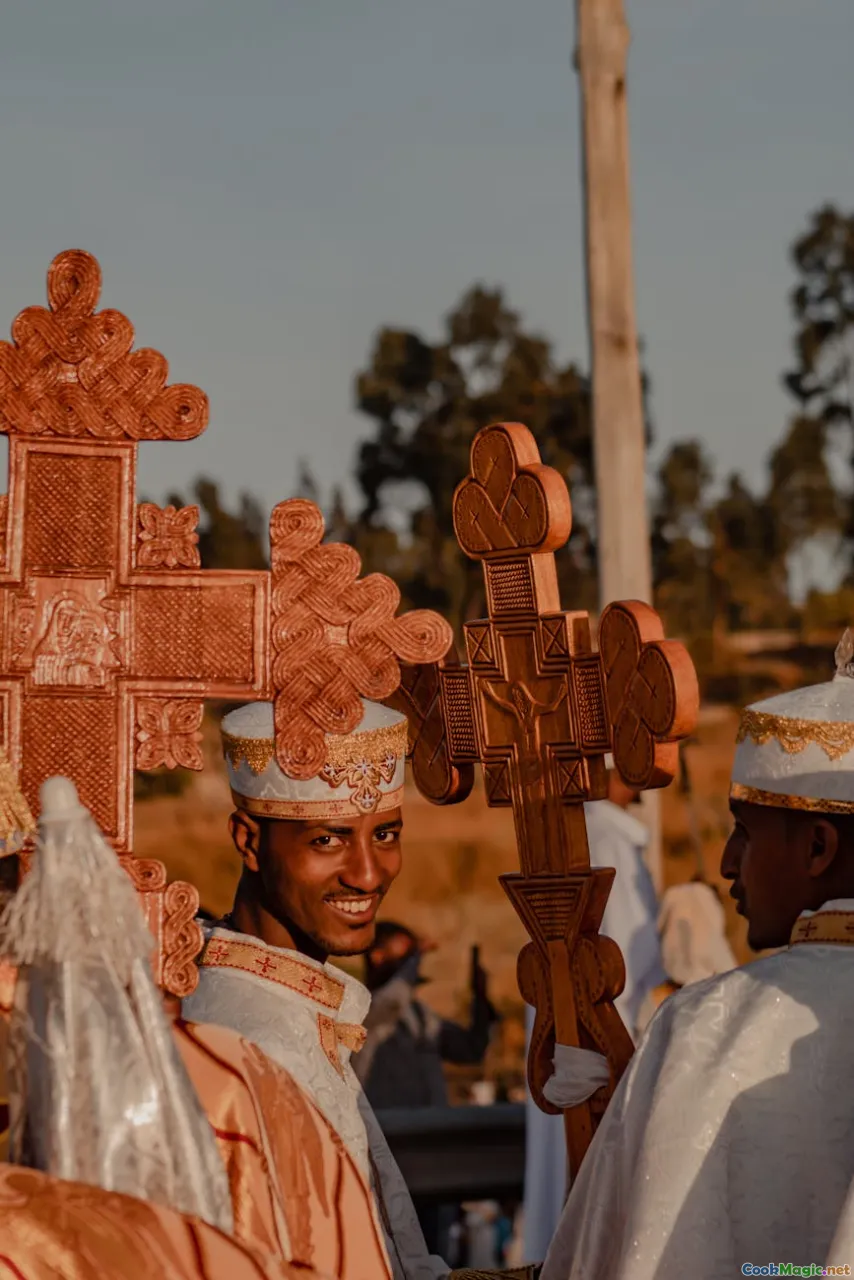Ethiopian Feast Days Explained
8 min read Discover the rich tapestry of Ethiopian feast days, their cultural significance, traditional foods, and vibrant celebrations that shape Ethiopia's identity. April 26, 2025 21:00
Ethiopian Feast Days Explained
Ethiopia, a land of ancient history and vibrant culture, is renowned for its unique traditions, compelling stories, and, perhaps most tantalizingly, its extraordinary cuisine. Amidst the rhythm of daily life lie the grand feast days—festivals that are not merely religious observances but profound expressions of Ethiopian identity, community, and faith. These days are marked by colorful processions, soulful music, and a feast for the senses with dishes bursting with flavor, aroma, and history.
An Introduction to Ethiopia’s Cultural and Religious Tapestry
To truly appreciate Ethiopian feast days, one must understand the deep intertwining of religion, history, and community that defines the country. Ethiopia’s religious landscape is predominantly Christian Orthodox, with Islam and other faiths also present. These religious traditions have shaped the calendar, giving rise to a series of feast days that are celebrated with fervor and devotion.
Ethiopian Orthodox Christianity, which dates back to the 4th century, is the backbone of many of these celebrations. The rich liturgical traditions, ancient hymns, and sacred rituals are woven into every festival, often accompanied by elaborate culinary offerings that reflect Ethiopia’s diverse agricultural bounty.
Key Feast Days in Ethiopia
1. Timket (Epiphany) – January 19Timket, or Epiphany, is perhaps Ethiopia’s most spectacular religious festival. Celebrated on January 19th (or 20th in leap years), it commemorates the baptism of Jesus Christ in the River Jordan. The day begins early with a solemn procession of beautifully adorned Tabots—iconic replicas of the Ark of the Covenant—carried through towns and villages. The air is thick with the scent of frankincense and myrrh, and the streets echo with the haunting melodies of monks chanting.Culinary Experience:
While the focus is spiritual, the communal gatherings afterward feature traditional dishes like injera (a spongy sourdough flatbread) topped with various stews (wats), and an array of vegetarian dishes as many Ethiopians observe fasting before the celebration.
2. Genna (Christmas) – January 7Ethiopian Christmas, known locally as Genna, is a deeply spiritual and family-centered holiday. The day begins with a midnight church service where congregants sing hymns and light candles, creating a sea of flickering lights that symbolize hope and renewal.Culinary Experience:
Post-service, families gather around a festive table laden with injera and hearty stews like doro wat (spicy chicken stew), kitfo (minced raw meat seasoned with spices), and firfir (shredded injera with spicy sauce). Special breads like difo dabo and sweet honey wine (tej) often accompany these feasts.
3. Meskel – September 27Meskel, meaning “cross,” celebrates the discovery of the True Cross by Queen Helena in the 4th century. Known for its enormous bonfires called Demera, the festival is a visual spectacle, with burning logs illuminating the night sky and symbolizing the light of faith dispelling darkness.Culinary Experience:
Festivities include sharing injera with spicy lentil dishes (misir wat), roasted meats, and traditional coffee ceremonies. The aroma of freshly ground coffee beans and the taste of sweet honey-infused drinks add to the sensory richness.
4. Enkutatash (New Year) – September 11 or 12Marking the Ethiopian New Year, Enkutatash is a vibrant celebration of renewal and hope. The day is filled with singing, dancing, and exchanging of flowers, especially the bright yellow khat blossoms.Culinary Experience:
A variety of sweet dishes, including honey-dipped bread and baklava-like pastries, are served alongside traditional Ethiopian coffee, which is central to the celebration. The festive atmosphere is amplified by colorful dresses and lively music.
The Emotional and Social Significance of Feast Days
Beyond the religious and cultural rituals, Ethiopian feast days serve as vital social glue. They are times when families reunite, communities come together, and shared traditions reinforce a collective identity that has endured for millennia.
Participating in these celebrations offers a sensory journey—smelling incense and roasted coffee, tasting spicy stews and sweet breads, hearing the harmonious chants, and witnessing the intricate dances. Each element reflects Ethiopia’s rich history, resilient faith, and the unbreakable bonds of community.
Personal Reflections and Anecdotes
Having visited Ethiopia during several of these festivals, I can attest to the profound sense of unity and reverence that fills the air. One of my most vivid memories is standing amidst a sea of believers during Meskel, the flames flickering against the night sky, while the scent of burning wood mingled with the aroma of doro wat. The experience was not just visual but an emotional immersion into a culture where faith and food are inseparably intertwined.
The hospitality I encountered was heartwarming—families inviting strangers to share their tables, offering steaming injera and spicy stews with genuine smiles. These moments exemplify Ethiopia’s deep-rooted belief that festivals are not merely about rituals but about fostering love, hope, and resilience.
Conclusion: Embracing Ethiopia’s Feast Days
Ethiopian feast days are more than calendar events—they are living expressions of faith, history, and community spirit. They invite us to slow down, savor rich flavors, and participate in age-old traditions that have sustained the Ethiopian people through centuries.
Whether you are a culinary enthusiast eager to explore new flavors or a cultural traveler longing to understand the soul of Ethiopia, these festivals offer a window into a world where food and faith dance in harmonious celebration. Embrace the colors, aromas, and stories behind Ethiopia’s feast days—they are truly a feast for the senses and the spirit.









